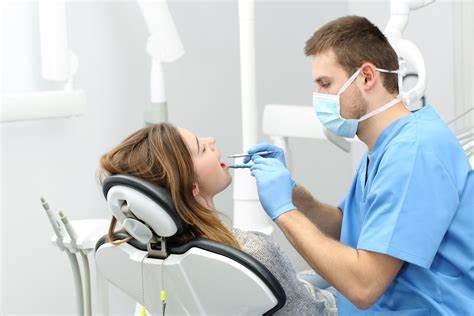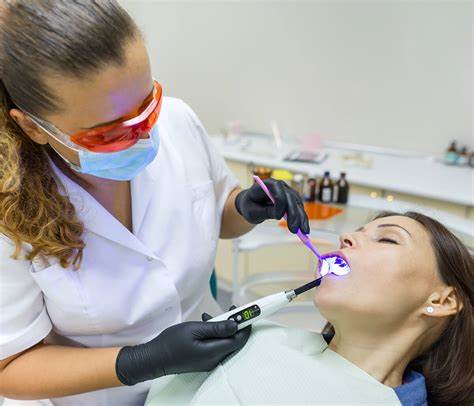Are you one of the many people who dread going to the dentist? Dental anxiety is a common issue that affects people of all ages. The good news is that there is a solution to help you conquer your fears – a sedation dentist. In this article, we will explore how a sedation dentist can help you overcome your dental anxiety and have a stress-free dental experience.
Contents
- 1 Understanding Dental Anxiety and its Impact on Oral Health
- 2 What is a Sedation Dentist and How Can they Help?
- 3 Types of Sedation Dentistry Options Available
- 4 Benefits of Choosing a Sedation Dentist for Dental Anxiety
- 5 How to Find a Qualified Sedation Dentist in your Area
- 6 Preparing for your Sedation Dentistry Appointment
Understanding Dental Anxiety and its Impact on Oral Health
Dental anxiety is more than just a fear of going to the dentist. It is a psychological condition that can cause intense feelings of fear, unease, and nervousness. For many individuals, this fear is rooted in past negative experiences or the fear of pain and discomfort during dental procedures. Unfortunately, dental anxiety often leads to avoidant behavior, where individuals postpone or completely avoid necessary dental treatment.
The impact of dental anxiety on oral health can be significant. Neglecting regular dental visits and necessary treatments can result in the progression of dental issues, such as tooth decay, gum disease, and even tooth loss. Additionally, untreated oral health problems can have a detrimental effect on overall health, as they can contribute to systemic issues like cardiovascular disease and diabetes.
What is a Sedation Dentist and How Can they Help?
A sedation dentist is a dental professional who specializes in administering sedation techniques to help patients relax during dental procedures. These dentists have undergone additional training to safely administer sedation and monitor patients throughout their treatment. Best sedation dentist near me offers a range of options to suit different levels of anxiety, from mild relaxation techniques to deeper sedation for more severe cases.
Sedation dentists utilize various methods to ensure patient comfort, including oral sedation, nitrous oxide (also known as laughing gas), intravenous sedation, and general anesthesia. The type of sedation used will depend on the patient’s individual needs and the complexity of the dental procedure. These options allow patients to undergo dental treatment without experiencing the fear and anxiety that often accompanies it.
Types of Sedation Dentistry Options Available
- Oral Sedation: Oral sedation involves the use of prescription medication taken before the dental appointment. The medication induces a state of relaxation and reduces anxiety. This type of sedation is ideal for patients with mild to moderate dental anxiety.
- Nitrous Oxide Sedation: Nitrous oxide, commonly known as laughing gas, is a safe and effective sedative that is inhaled through a mask placed over the nose. It induces a state of relaxation and reduces anxiety during dental procedures. Nitrous oxide is a popular choice for patients with mild to moderate dental anxiety, as its effects wear off quickly after the procedure.
- Intravenous Sedation: Intravenous (IV) sedation involves the administration of sedative medication directly into the bloodstream through a vein. This type of sedation allows for a deeper level of relaxation, making it suitable for patients with moderate to severe dental anxiety. IV sedation is closely monitored by the sedation dentist throughout the procedure.
- General Anesthesia: General anesthesia is the deepest form of sedation and renders the patient completely unconscious during the dental procedure. It is typically reserved for complex or lengthy procedures or for patients with severe dental anxiety. General anesthesia is administered and monitored by an anesthesiologist or a dentist with specialized training.
Benefits of Choosing a Sedation Dentist for Dental Anxiety
- Reduces Anxiety: The primary benefit of seeing a sedation dentist is the significant reduction in anxiety and fear associated with dental treatment. Sedation techniques help patients relax and feel comfortable throughout the entire procedure.
- Pain and Discomfort Management: Dental procedures can sometimes be uncomfortable or mildly painful. Sedation dentistry ensures that patients do not feel any pain or discomfort during treatment, allowing for a more relaxed and positive experience.
- Time Efficiency: Dental anxiety often causes individuals to avoid or postpone necessary dental treatment. By visiting a sedation dentist, patients can complete multiple dental procedures in a single visit, minimizing the number of appointments and saving time in the long run.
- Improved Oral Health: Overcoming dental anxiety and receiving regular dental care can significantly improve oral health. Sedation dentistry enables individuals to receive the necessary treatments, reducing the risk of dental problems and maintaining a healthy smile.
How to Find a Qualified Sedation Dentist in your Area
Finding a qualified sedation dentist is crucial to ensure a safe and effective dental experience. Here are some steps to help you find the right sedation dentist in your area:
- Ask for Recommendations: Start by asking your family, friends, or primary care dentist for recommendations. Personal referrals can provide valuable insights into the quality of care and patient experience.
- Research and Read Reviews: Use online resources and review websites to research sedation dentists in your area. Read patient reviews to gain an understanding of their experiences and satisfaction with the sedation dentist’s services.
- Check Qualifications: Ensure that the sedation dentist has the necessary qualifications and certifications to administer sedation techniques. Look for affiliations with professional organizations and any additional training in sedation dentistry.
- Schedule a Consultation: Once you have narrowed down your options, schedule a consultation with the sedation dentist. During this visit, discuss your dental anxiety, ask questions about their sedation techniques, and assess their overall approach to patient care.
Preparing for your Sedation Dentistry Appointment
Preparing for a sedation dentistry appointment involves a few essential steps to ensure a smooth and stress-free experience:
- Communicate Your Concerns: Let your sedation dentist know about your dental anxiety and any specific concerns you may have. Open communication will help them tailor the sedation technique to your needs.
- Follow Pre-Procedure Instructions: Your sedation dentist will provide specific instructions to follow before the appointment. These may include fasting for a certain period or adjusting medication schedules. Follow these instructions carefully to avoid any complications.
- Arrange Transportation: Depending on the level of sedation used, you may not be able to drive yourself home after the appointment. Arrange for a responsible adult to accompany you and drive you home safely.
- Plan for Recovery: Some sedation techniques may leave you feeling groggy or drowsy even after the procedure. Plan for a restful day following the appointment to allow your body to recover fully.
Dental anxiety should not prevent you from receiving the necessary dental care. A sedation dentist can provide the support and techniques needed to overcome your fears and have a stress-free dental experience. By understanding dental anxiety, exploring the benefits of sedation dentistry, and finding a qualified sedation dentist, you can conquer your dental anxiety and maintain optimal oral health. Don’t let fear hold you back; take the first step towards a positive dental experience today.




